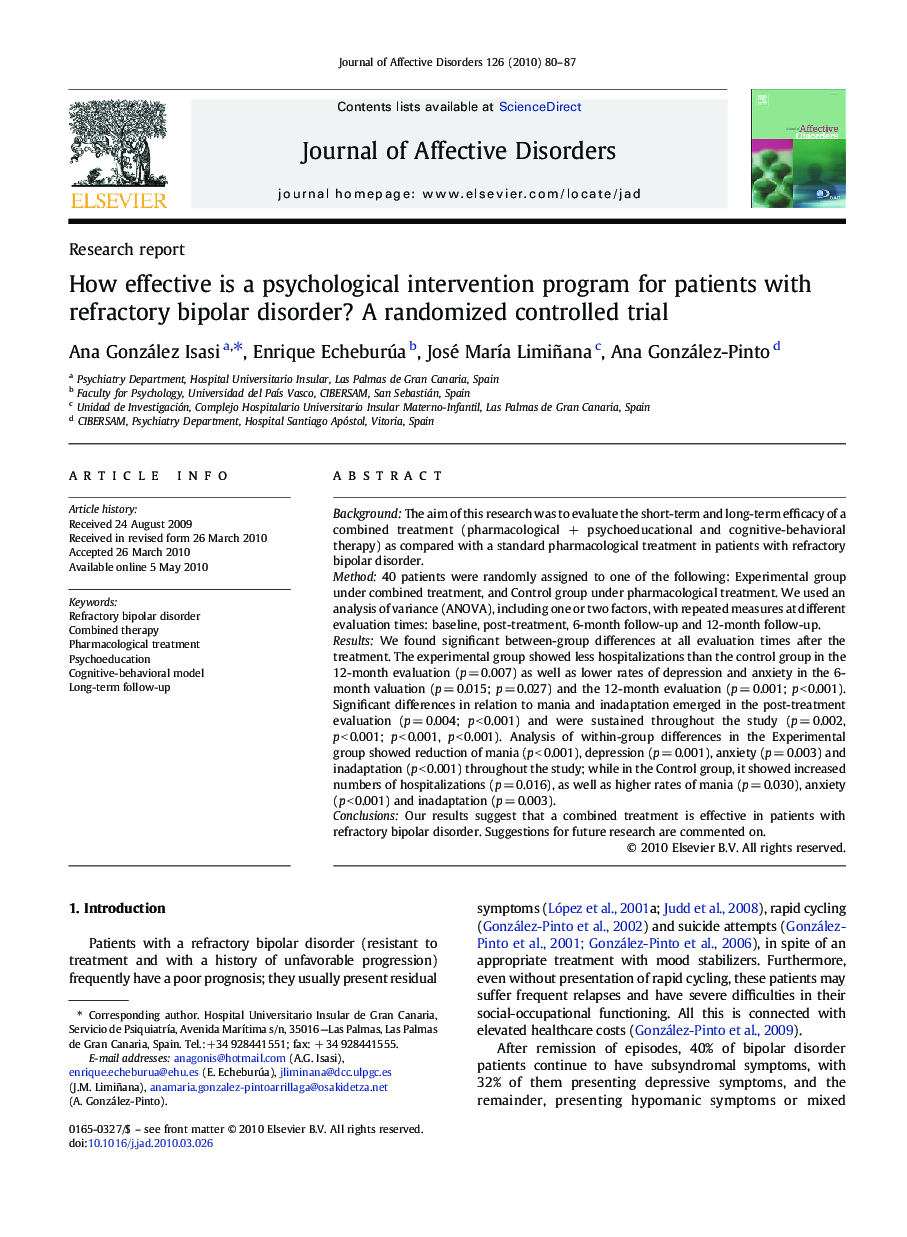| Article ID | Journal | Published Year | Pages | File Type |
|---|---|---|---|---|
| 4186767 | Journal of Affective Disorders | 2010 | 8 Pages |
BackgroundThe aim of this research was to evaluate the short-term and long-term efficacy of a combined treatment (pharmacological + psychoeducational and cognitive-behavioral therapy) as compared with a standard pharmacological treatment in patients with refractory bipolar disorder.Method40 patients were randomly assigned to one of the following: Experimental group under combined treatment, and Control group under pharmacological treatment. We used an analysis of variance (ANOVA), including one or two factors, with repeated measures at different evaluation times: baseline, post-treatment, 6-month follow-up and 12-month follow-up.ResultsWe found significant between-group differences at all evaluation times after the treatment. The experimental group showed less hospitalizations than the control group in the 12-month evaluation (p = 0.007) as well as lower rates of depression and anxiety in the 6-month valuation (p = 0.015; p = 0.027) and the 12-month evaluation (p = 0.001; p < 0.001). Significant differences in relation to mania and inadaptation emerged in the post-treatment evaluation (p = 0.004; p < 0.001) and were sustained throughout the study (p = 0.002, p < 0.001; p < 0.001, p < 0.001). Analysis of within-group differences in the Experimental group showed reduction of mania (p < 0.001), depression (p = 0.001), anxiety (p = 0.003) and inadaptation (p < 0.001) throughout the study; while in the Control group, it showed increased numbers of hospitalizations (p = 0.016), as well as higher rates of mania (p = 0.030), anxiety (p < 0.001) and inadaptation (p = 0.003).ConclusionsOur results suggest that a combined treatment is effective in patients with refractory bipolar disorder. Suggestions for future research are commented on.
